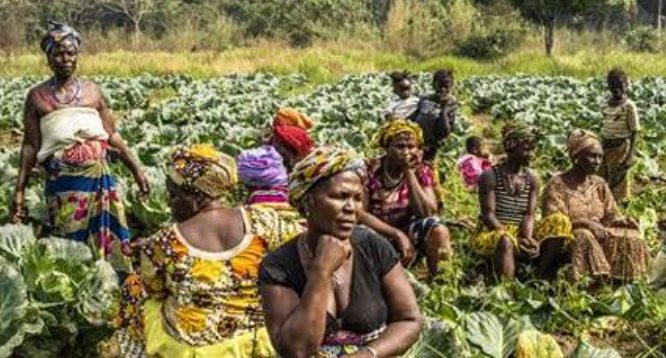We can’t discuss nutrition without smallholder farmers
The 2021 UN Food Systems Summit will not be complete without highlighting the issues of African agriculture.
In 2019, UN Secretary-General António Guterres appointed a Special Envoy to the 2021 Food Systems Summit amid rising concerns on the state of food security worldwide. At the time, the numbers coming out of the World Food Programme were anything but reassuring: more than 820 million people worldwide suffering from hunger, with Africa hit the hardest at an 18.6% undernourishment rate; quite a disconnect from the ambitious goal of Zero Hunger targeted by the UN Sustainable Development Goals for 2030. The appointment of Agnes Kalibata, the former Rwandan agriculture minister, as Special Envoy to the UN Food System Summit was seen by many as a symbolic recognition that such a goal cannot be achieved without paying special attention to Africa’s food security issues.
That was before COVID-19 broke out, making a global summit on food systems even more of a necessity. In a matter of months, the global food supply chain was turned upside down. Lockdowns, border closures and restrictions on movement had a direct effect on the production, processing, transportation and consumption of food for millions. Global prices of basic foodstuffs like cereals, vegetables and dairy have consistently risen by up to 14% in 2020. Unsurprisingly, the number of undernourished people worldwide also continued to rise, but none so much as in Africa. Undernourishment in the continent is now estimated at 19.1%, forecasted to reach 25.7% in 2030.
The statistics on global hunger are truly dizzying. Yet in coverage of COVID-19’s disruption of our food systems, international media has focused on broadcasting footage of panic buying and empty supermarket shelves. As tempting as it is to reduce food crises to such “zombie apocalypse” scenarios, we run the risk of ignoring the one stakeholder without whom there would be no food in the first place: farmers.

The continent with the gravest nutrition crisis is also the one with the most significant agricultural workforce. Seven out of ten Africans rely on subsistence farming. Only once they ensure food security for their families can they even expect to earn a living from harvesting the fields in their backyards. Surely any international event like the 2021 UN Food Systems Summit is bound to prioritize the inclusion of smallholder farmers in discussions on the future of food security and nutrition…
Upon a tour of the Summit’s website, one quickly grasps that the summit is making significant efforts to gather as many inputs as possible from a variety of stakeholders. National governments, private corporations, NGOs, opinion makers and volunteering Food Systems Heroes are each given a voice in their respective dialogues. The themes, action tracks and discussion forums cover a comprehensive range of topics linked directly or indirectly to global nutrition. Healthy diets. Climate change. Data Solutions. Genetic engineering. Circular economy. Sustainability standards. Digital inclusion…
In the midst of the search for solutions that show potential to transform the future of food security and nutrition, one voice risks getting lost among louder voices: the voice of smallholder farmers still struggling to consistently produce adequate and nutritious food for their families and communities. The solutions smallholder farmers require are many: access to knowledge about sustainable food production practices, through programs such as farmer field schools, high-quality extension and digital advisory services; affordable inputs, including appropriate seeds, plant nutrients and precision agriculture technologies, available from nearby farmer-facing businesses; tools for financial literacy and financial products that are extended to smallholder farmers. Enhancing the productivity of these farmers would dramatically transform local food systems, making more food locally available and strengthening farmer livelihoods to build vibrant rural economies. At the market level, African farmers need value-chain partnerships and robust cooperative models that ensure higher yields, translating to improved incomes and livelihoods.

The overwhelming majority of these smallholder farmers are in Africa. Can we then blame Africans if they perceive the 2021 Food Systems Summit as yet another perpetuation of global food inequalities?
Some farmer groups have already taken the high road, pledging to boycott the 2021 Summit due to what they see as corporate domination of its agenda. How that would accomplish anything for smallholder farmers is still a mystery. As the world brainstorms its way out of future food crises, now is not the time to leave the conversation.
Yes, African farmers must have a seat at the table in this year’s Food Systems Summit. As a “People’s Summit”, the UN must incorporate solutions designed for smallholder farmers in its scientific, advocacy and leadership agenda. Here is the good news: Africa’s smallholder farmers may not necessarily have an advocacy platform, but they have a voice. Their governments are eager to represent them. Local academic institutions are producing groundbreaking research rooted in their needs. The public is massively advocating on their behalf on digital media platforms.

